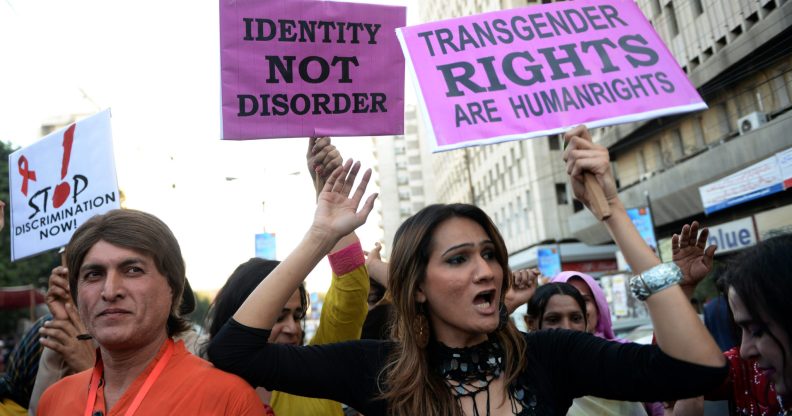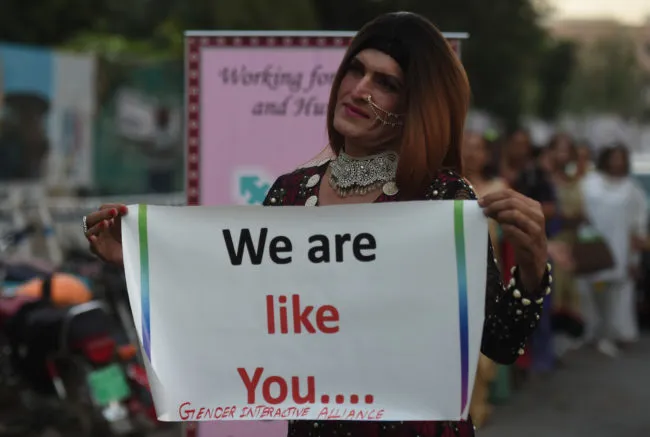Pakistani government hires first transgender employee

Transgender activists in Pakistan (ASIF HASSAN/AFP/Getty)
The Pakistani federal government counts a transgender employee among its work force for the first time.
The Benazir Income Support Programme, a federal unconditional cash transfer poverty reduction programme, has announced the historic hire in a letter dated September 26 that stated the new employee would join the Islamabad headquarter as a cook in its cafeteria.
“It is still unbelievable I got a respectable government job on merit and now I will be able to earn money with full respect and dignity,” said the new employee, knows as Nomi, talking to the Pakistani newspaper The Express Tribune.
Nomi described cooking as one of her passions. She doesn’t have any formal qualifications, but she learnt how to cook from her mother. She felt validated by the job offer as she was often told she wouldn’t be able to make a living through lawful employment.
“My appointment is an answer to those people, especially my neighbours and relatives, who believe that a person like me can only earn through illegal means,” she said.
“I hope now people will feel proud of me rather than degrading me” she added.

A Pakistani transgender activist poses for a photograph as they take part in a demonstration in Karachi on November 20, 2017 to mark World Transgender Day. (Asif Hassn/AFP/Getty)
Pakistan’s transgender community is still the target of societal discrimination and horrific violence in the country—where homosexuality is still illegal—and has only recently winning legal recognition, with a major legislation passed in February recognising their gender without requiring consent from a medical board and awarding them the same protections to dignity and security as other citizens.
Nomi’s new employer, BISP Additional Director General Conditional Cash Transfers Naveed Akbar, told The Express Tribune that the department is looking to hire more transgender people and had promised there would be zero tolerance for those harassing them.
Nomi joined the ranks of other trailblazing transgender individuals in Pakistan, such as broadcaster Marvia Malik, who made her debut on the Kohenoor news channel in March.

In this photograph taken on March 27, 2018, Pakistan’s first transgender news anchor Marvia Malik, 21, poses for a photograph prepares before going live to read the news. (Arif Ali/AFP/Getty)
Malik, who has also walked the runway as a model, said she wanted to be in journalism to empower the transgender community. “But there’s nothing we can’t do; we’re educated, have degrees, but no opportunities, no encouragement. This is what I want to change.”
This year also saw a record-high number of five transgender candidates running for election in July—following in the footsteps of Sanam Fakir, who was the first transgender candidate to run for election in Pakistan in 2013.
None of the five candidates, however, managed to win seats and trans rights campaigners reported being turned away from the polling stations.

